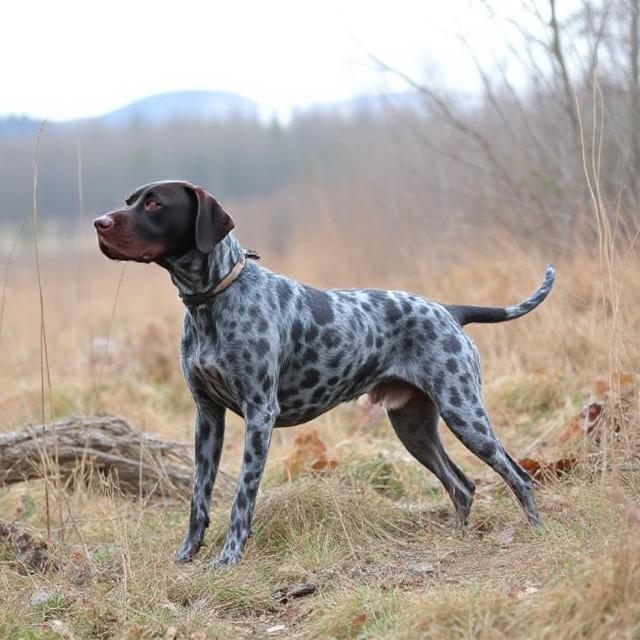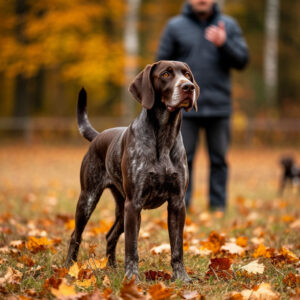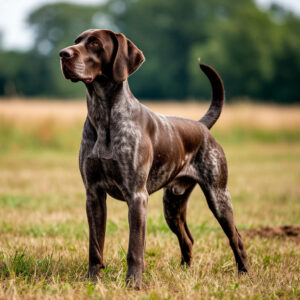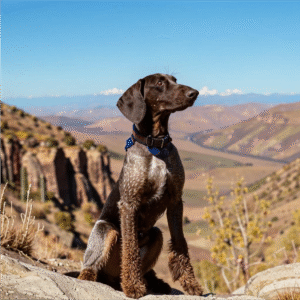Mastering German Pointer Hunting: From Started to Finished Dogs
Do you have a high-energy German Pointer ready to turn those natural instincts into real hunting skills? Great. Whether you’re working with a beginner pointer or a new puppy, the path to a ready-made hunting dog is one of patience, smart steps, and fun.
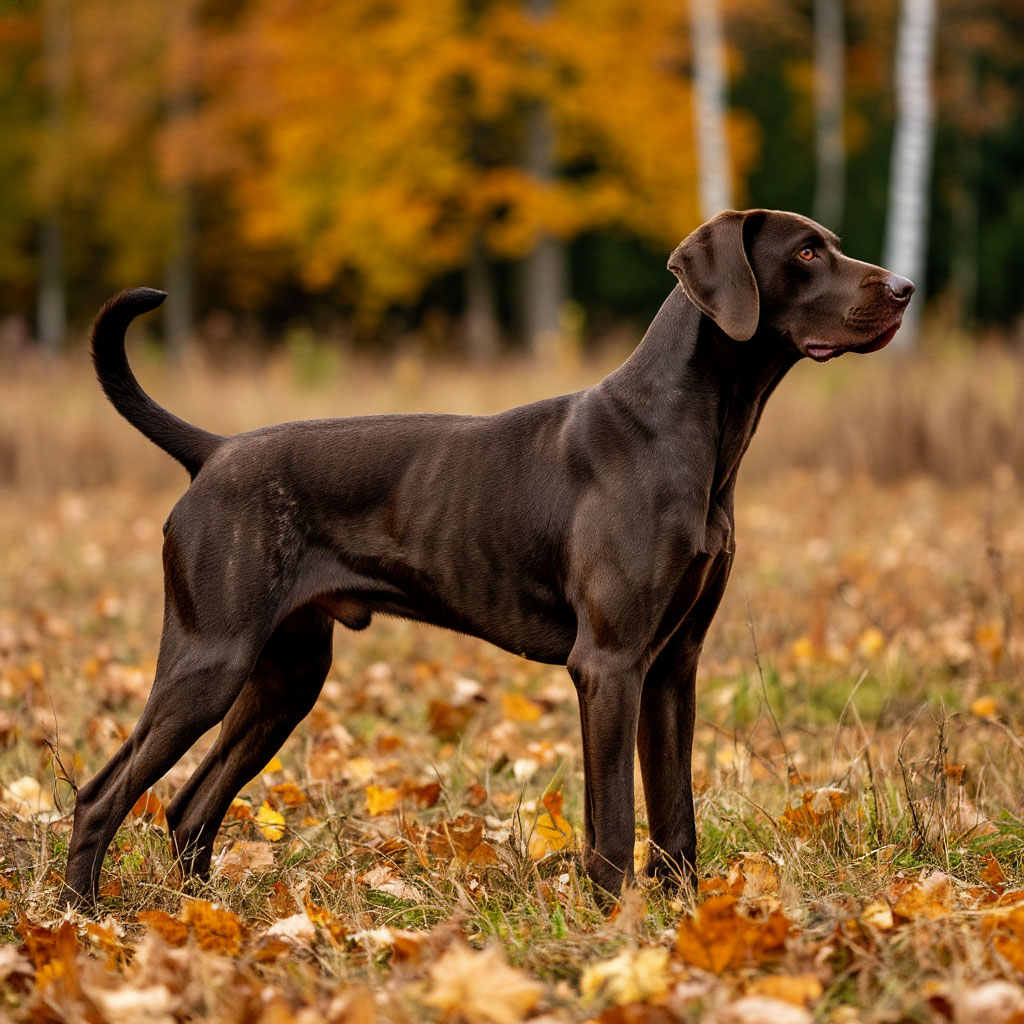
Choosing the Right Beginner Pointer for Hunting
Not all dogs start out at the same level. Some German Pointers show bold pointer instincts early on. Others need a little push. Here are a few things to look for:
- Natural instinct – Does your dog target birds or chase scent trails? That’s gold.
- Poise – Shots and new places shouldn’t spook him.
- Focus – A little distraction is okay, but he should come back to you.
If your dog is already a beginner pointer, great. If not, don’t worry. Early play with feathers and pretend fetch quickly builds confidence.
Setting Realistic Expectations for a Finished Pointer
Transforming a novice pointer into a complete hunting companion takes time. Your German pointer may show natural talent early on, but consistency and reliability are achieved through consistent, positive training.
Every dog progresses differently. Some quickly master a complex retrieve. Others need more time on the basics. Focus on small victories—a longer hold today, a cleaner retrieve tomorrow. NAVHDA standards provide helpful guidelines, but your training program should adapt to your dog’s pace.
Remember, “complete” does not mean perfect. Even experienced hunting dogs sometimes have bad days. Be patient, make training enjoyable, and celebrate progress. The bond you create is more important than rushing time. With the right approach, your German pointer will develop into the hunting partner you envision.
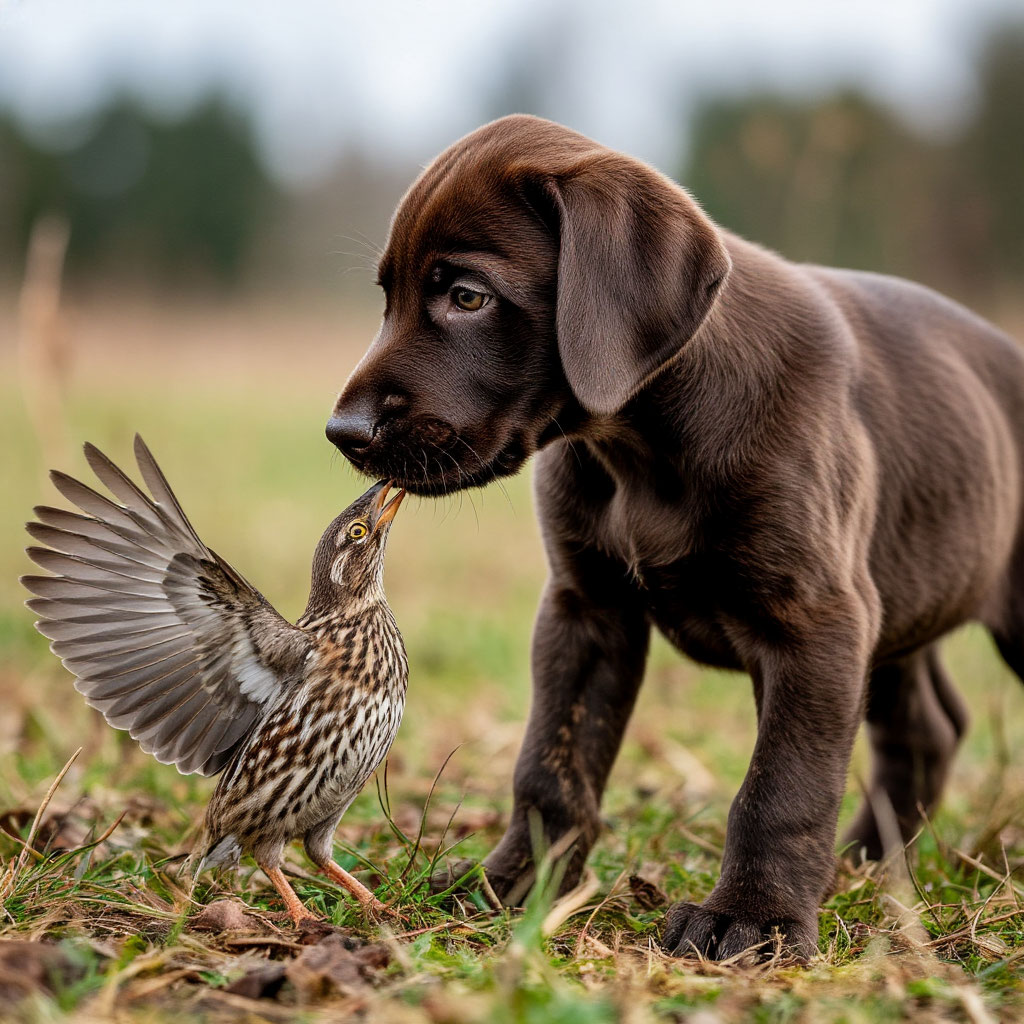
Getting Started in Your Training Program
Beginning to train your German Pointer to hunt requires a solid foundation. Before you hit the field, focus on these basic elements:
- Learn basic obedience. A reliable recall and consistent sit commands are non-negotiable for safety and control.
- Introduce birds to wings. Use clipped wings or scent decoys to generate interest.
- Desensitize to gunshots. Begin with distant claps during play sessions
- Develop retrieve instinct. Begin with short, enthusiastic retrieves.
- Build confidence in the field. Gradually introduce different terrain and conditions
Keep initial sessions short and positive. Your German Pointer’s natural hunting instincts will come through when training is treated like play, not work. Start with 10-15 minute sessions, always ending on a high note.
For young pointers, focus on developing prey drive first before formalizing the behavior. Let them chase and explore – you can hone their technique later. Older dogs may need more structured introductions to new concepts. Remember, each dog develops at his own pace in the training program. Your primary goal is to build confidence and enthusiasm. Technical skills will come naturally as your pointer associates training with excitement and rewards.
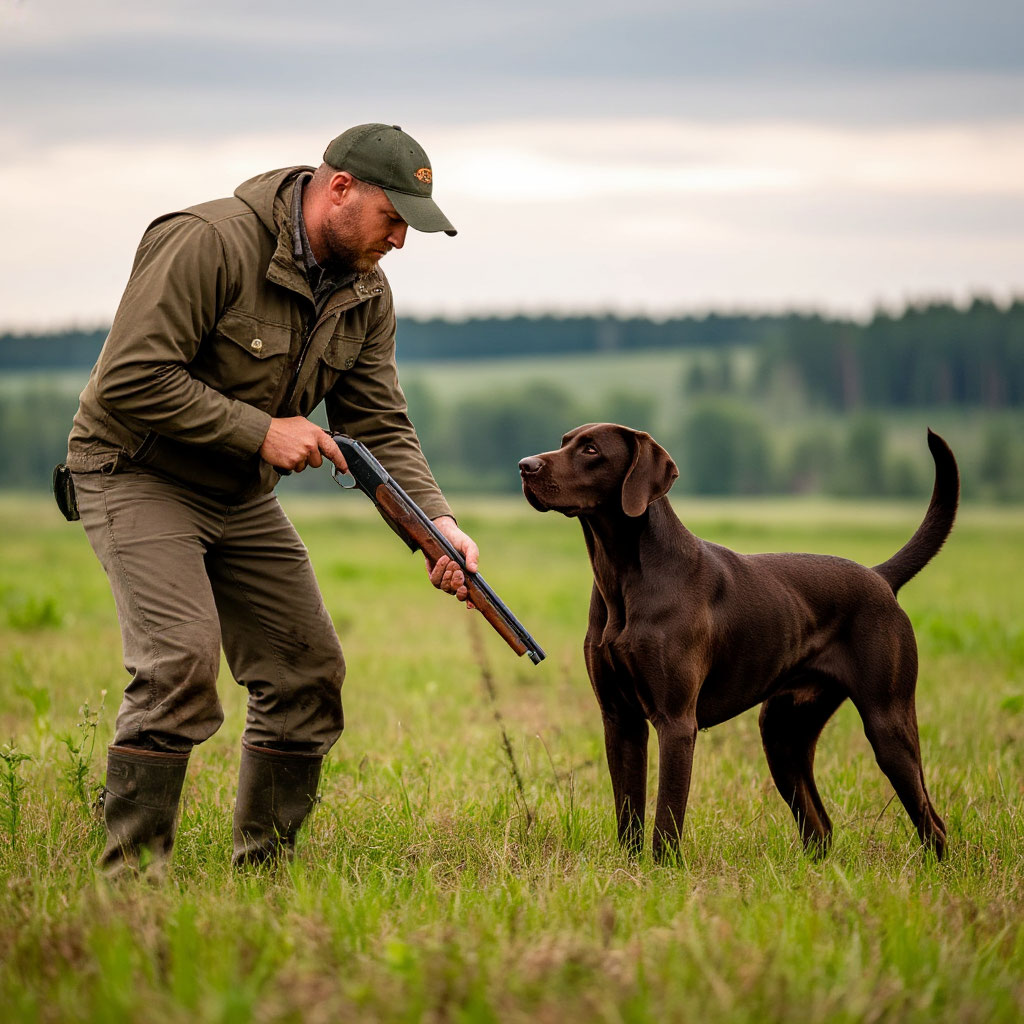
Forced Retrieving: Why It’s Important (and How to Make It Less Stressful)
Every serious German Pointer needs reliable retrieving skills. This is where forced retrieving becomes an essential part of your training program. This method teaches your dog to consistently retrieve game, even when distracted or tired. While the term may sound complicated, it’s simply about building muscle memory and confidence through gradual steps.
The process works best when broken down into manageable phases. Start with basic commands like “hold” before applying any pressure. Keep sessions short (5-10 minutes) and always end on a positive note. Remember, the goal is not to force compliance, but to build understanding—your budding Pointer should view this as just another rewarding game.
Here is a simple progression chart to follow:
| Stage | Focus | Tips |
| Introduction | Mouth conditioning | Use a dummy with pleasant texture |
| Development | Adding light pressure | Apply gentle ear or toe pressure |
| Reinforcement | Short retrieves | Praise every successful return |
Timing is of the essence in this training scale. Most German Pointers respond best when they begin to retrieve game by force after basic obedience but before advanced field work. Watch for signs of stress. If your dog hesitates or avoids the dummy, slow down. NAVHDA training standards emphasize a steady, voluntary retrieve rather than rushed results. With patience, this process will transform a hesitant retrieve into a confident one.
NAVHDA Training Standards Made Easy
Understanding the NAVHDA system helps shape your German Pointer into a versatile hunting partner. These training standards provide clear milestones without the pressure:
- Natural Ability Test – evaluates innate hunting instincts.
- Water Preparation – develops solid target and water pointing skills.
- Water Test – confirms readiness for real hunting.
- Invitation – for elite hunting dogs with advanced abilities.
The Natural Ability Phase celebrates the raw talent of your entry-level Pointer. This is the starting point, pursuit instinct, and basic cooperation. As you progress through the training program, the Water Standards require greater precision: controlled retrieves, blind work, and obedience amidst distractions.
NAVHDA is not valuable for its names, but for the structured path it provides. Each test reflects real-life German Pointer hunting scenarios. Water training itself prevents awkward “shore hugs” when duck season rolls around. Judges are looking for willingness and adaptability. These are qualities that every ready-to-shoot gundog needs.
Remember, these are not pass/fail tests, but progress reports. Many trainers use them as checkpoints in their training timeline, adjusting methods based on their dog’s performance. Standards simply ensure that you are developing all the necessary skills, not just the flashy ones.
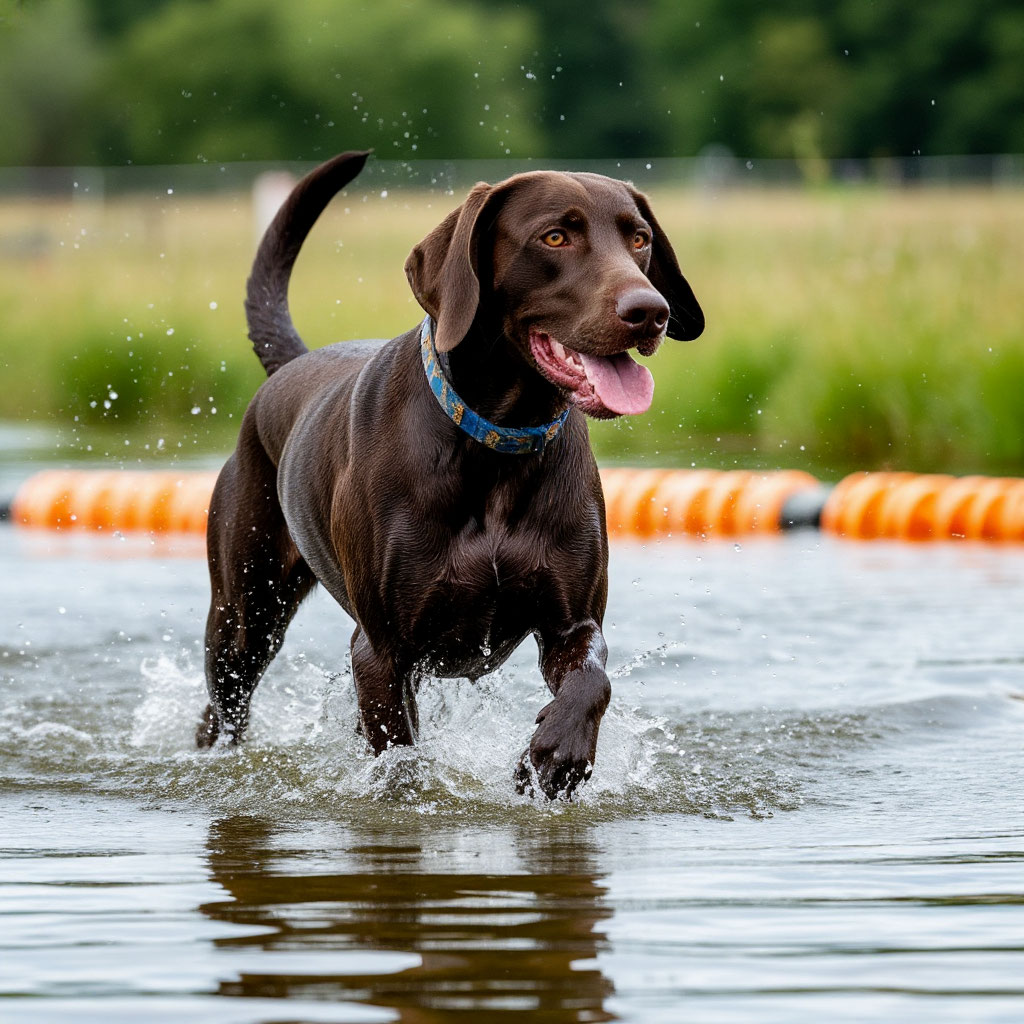
Training Timeline: What to Expect
Getting a German Pointer ready to hunt follows natural stages of development:
- 2-6 months – developing prey drive and basic obedience.
- 6-12 months – introduction to birds and shooting.
- 1-2 years – practicing stability and retrieving.
- 2+ years – advanced field work and polishing.
Your beginning Pointer will not become a ready-to-shoot gundog overnight. In the early months, focus on fun stimulation. Let the puppies chase wings, splash in water, and associate training with excitement. The real training program intensifies during adolescence, when mental maturity allows for focused training.
Power retrieving takes 8 to 14 months, while complex blind retrieves wait until solid foundations are in place. NAVHDA members often synchronize their training dates with test schedules, using events as motivating deadlines.
Plateaus are normal. When progress stalls, revisit the basic skills rather than pushing harder. Some German Pointers need extra bird work; others need more obedience reinforcement. The calendar matters less than consistent, positive progress toward your vision of the perfect hunting companion.
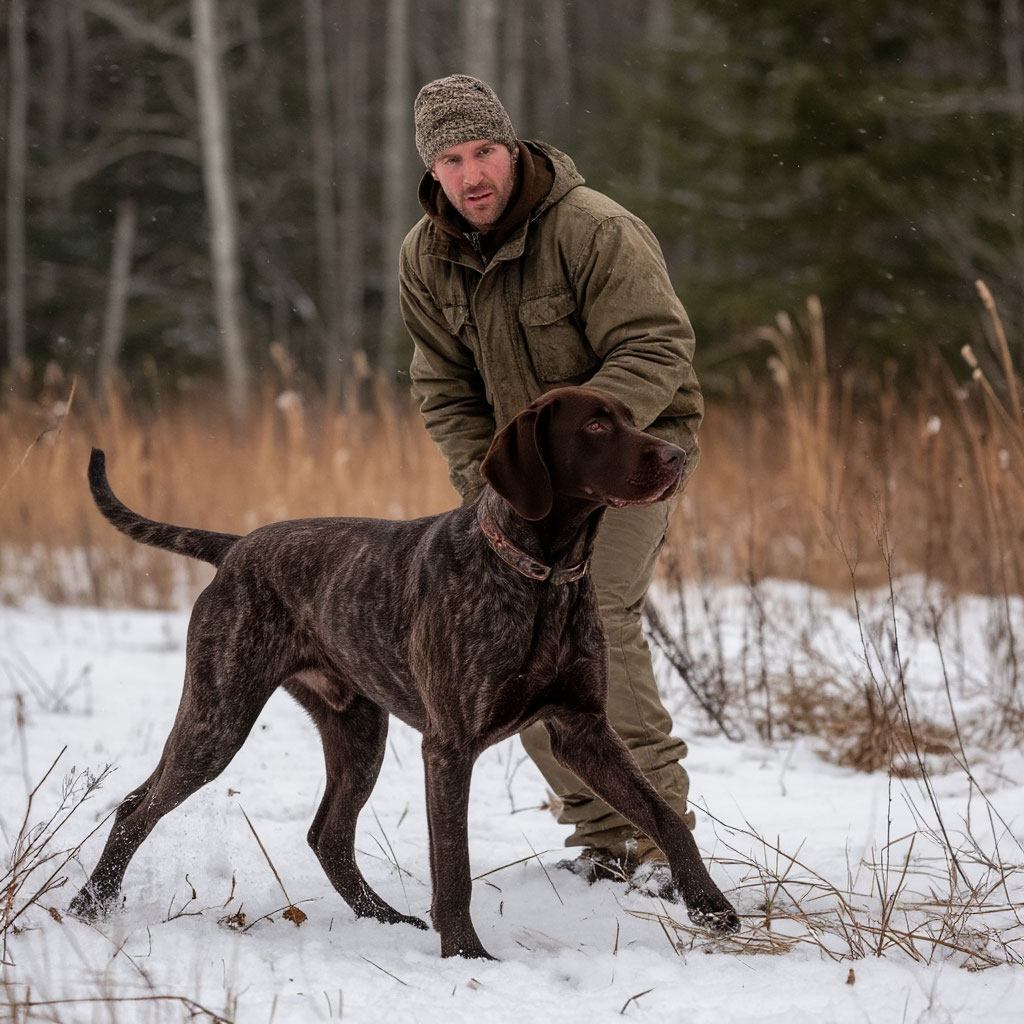
Keeping Your Skills Sharp Year-Round
Keeping your finished gundog’s abilities sharp requires creativity in the off-season:
- Weekly mock hunts – maintain field readiness.
- Water retrieving – prevent summer regression.
- Scent tracking – use thawed birds in the snow.
- Obedience refresher – 5-minute daily exercises.
German Pointers thrive on routine. Even 15-minute sessions prevent backsliding on your hard-earned training program. Swap frozen bumpers for live bird decoys to keep retrieving exciting. Try urban training – keeping your dog near park distractions demonstrates NAVHDA-level discipline.
Summer heat calls for early morning training. Focus on water retrieving as temperatures rise, use ponds to cool working dogs down, and reinforce skills at the same time. Introduce shooting gradually in the fall – a few starting shots from a pistol during play will restore sharp reactions. The best hunters view the training schedule as cyclical, not linear. Each season highlights different abilities, creating a well-rounded companion. Your German Pointer hunting partner will remain interested if the training is interesting year after year.
Training a German Pointer as an experienced hunting partner is a journey of small victories and growing together. There are no strict time limits. Just a unique rhythm that you and your dog develop together. By embracing the principles of NAVHDA, patiently honing your retrieve power, and marking each step in your training program, you will create more than a finished gundog. You will create a companion who anticipates your every move in the field.
